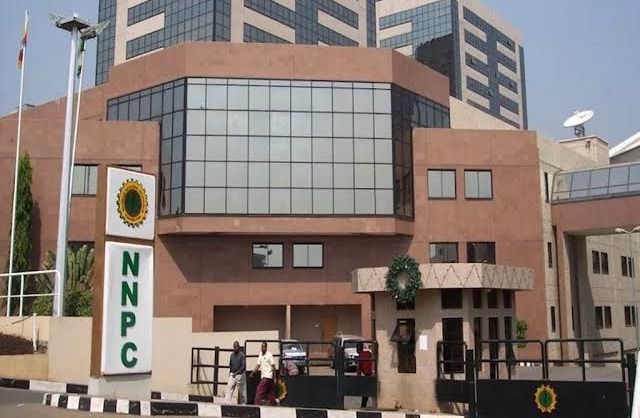A Federal High Court, Abuja has dismissed a suit filed by the Christian Association of Nigeria (CAN) against the Corporate Affairs Commission (CAC) and the Minister of Industry, Trade and Investment.
Justice Inyang Ekwo, in a judgment, dismissed the suit over the failure of the plaintiff to comply with the law in the name used in filing the originating summons.
“Therefore, this application lacks merit and ought to be dismissed and I hereby make an order dismissing same,” he declared.
While the Incorporated Trustees of Christian Association of Nigeria (CAN) is the plaintiff in the suit, the CAC and the Minister of Industry, Trade and Investment are 1st and 2nd defendants respectively.
The plaintiff, in an originating summons marked: FHC/ABJ/CS/244/2021, had prayed the court to determine “whether Section 839, subsections (1), (7) (a) and (10) of the Companies and Allied Matters Act (CAMA), 2020, is inconsistent with Sections 4(8), 6(6)(b) and 40 of the 1999 Constitution of the Federal Republic of Nigeria (CFRN) (as amended) which guarantees the plaintiff’s right to freedom of association and the right to seek redress in court.
“Whether the provision of Section 854 of the CAMA is inconsistent with Section 39 of the CFRN which guarantees the right to freedom of expression,” among others.
Part of the reliefs sought by the plaintiff include “a declaration that Section 839(1), (7) (a) and (10) of the CAMA are inconsistent with Section 40 of the CFRN and thus unconstitutional, null and void.
“A declaration that Section 839(1), (7) (a) and (10) of the CAMA are inconsistent with Section 4(8) of the CFRN and thus unconstitutional, null and void.
“A declaration that Section 839(1) and (7) (a) of the CAMA are inconsistent with Section 36(1) of the CFRN and thus unconstitutional, null and void.
“A declaration that Section 839(1) and (7) (a) of the CAMA has a direct effect on the judicial power of the court under Section 6(6) (b) of the CFRN, and Is therefore void.
“An order striking down Sections 839(1), (7) (a) & (10), 842(1) and (2), 843, 851 and 854 of the CAMA for being unconstitutional.
“A declaration that Section 17(2) (a) & (d) of the CAMA demand an impossible and impracticable action; thus, void.
“An Order striking down Section 17 (2) (a) & (d) of the CAMA for being impracticable and unknown to Law.”
However, in the course of the proceedings, CAN brought an application, praying for an order to amend the originating summons and accompanying processes by replacing the word, “INCORPORATED” with “REGISTERED” in the name of the plaintiff in the suit such that it would read, “The Registered Trustees of the Christian Association of Nigeria.”
The application was filed on the grounds that the name expressed in its certificate of incorporation is the “Registered Trustees of the Christian Association of Nigeria” and not “Incorporated Trustees of Christian Association of Nigeria.”
It stated further that in the originating summons, the plaintiff’s name was inadvertently expressed as “Incorporated Trustees of the Christian Association of Nigeria.”
“This error in the plaintiff’s name was as a result of the inadvertence of counsel.
“The error in the plaintiff’s name is what we seek by this application to rectify,” it added.
The plaintiff argued that it was an oversight on the part of the counsel who prepared the draft of the processes.
In its counter affidavit, the CAC had opposed the plaintiff’s suit, challenging the propriety of the constitution of the parties and competence of the plaintiff.
It argued that “The Incorporated Trustees of the Christian Association of Nigeria;” as a non-juristic person, was unknown to law to institute and maintain the action.
“The plaintiff is not an entity registered under the Companies and Allied Matters Act and not one otherwise recognised as being vested with statutory rights of incorporation and bereft of the requisite locus standi, legal capacity or competence to sue and maintain this action eo nomine against the 1st defendant.
“The certificate of incorporation, Exh. P1, is a certificate of Christian Association of Nigeria and not the plaintiff.
“The plaintiff being the party invoking the jurisdiction of this Honourable Court is not a juristic person and incompetent to do so.
“The amendment which the plaintiff seeks is not one to cure a mere misnomer but an amendment to give life to the originating processes by substituting a non-juristic person with a juristic person.
“The originating process of the plaintiff is incurably defective and cannot be cured by an amendment.
“This court cannot by an order, breathe life on an otherwise lifeless and/or non-existent entity.”
The CAC insisted that granting the application would change the character of the case and would be prejudicial to it.
Delivering judgment, Justice Ekwo said he had taken a look at the certificate of incorporation of the plaintiff attached to the origination summons as Exh. P1 and found that the name on the certificate is ‘The Registered Trustees of Christian Association of Nigeria.”
“Further peruse shows that the certificate was issued under the regime of the Land (Perpetual Succession) Act, Cap. 98 of the 1958 LFN on 19th December, 1986.
“This means that the plaintiff was registered before CAMA first came into effect in 1990.
“With this evidence, it means the plaintiff can only sue and be sued in the name on the certificate issued to it on 19th December, 1986,” he said.
He cited a previous case to back his stand.
“There must be consequential order in the circumstance of this case.
“The originating processes in the name of ‘The Registered Trustees of Christian Association of Nigeria’ cannot stand.
“Similarly, it is my opinion that this ruling has therefore also resolved the issue in the preliminary objection of the 1st defendant too.
“I find that the plaintiff did not comply with the law in the name used in filing its originating summons.
“Therefore, this application lacks merit and ought to be dismissed and I hereby make an order dismissing same,” he ruled.
The judge added that the ruling affected the foundation of the case going by the defect in the name by which the plaintiff commenced the matter.
“I therefore make an order striking out the entire case. This is the order of this court,” Ekwo held.








